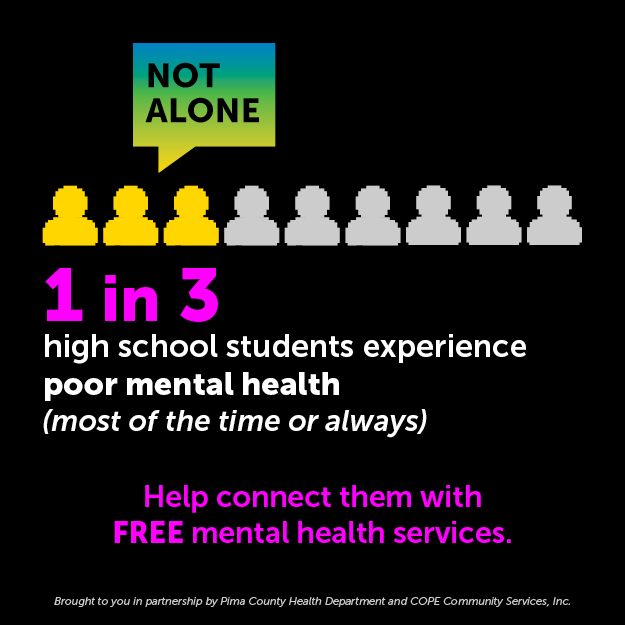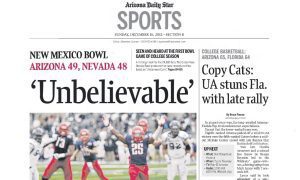FOLLOW @JAVIERJMORALES ON TWITTER!
[rps-paypal]
#APlayersProgram is proud to announce a two-year home-and-home series with @UConnMBB starting in Tucson in 2017! pic.twitter.com/2l1wthx8oH
— Arizona Basketball (@APlayersProgram) August 20, 2014
[ezcol_1half id=”” class=”” style=””]
UConn announces future home and home series with Ohio State and Arizona. Huskies making the right moves in scheduling since joining AAC.
— Andy Katz (@ESPNAndyKatz) August 20, 2014
[/ezcol_1half]
[ezcol_1half_end id=”” class=”” style=””]
Lute Olson made Arizona what it is today by taking on all comers, including a trip to Georgetown in 1986 (four years into his tenure in Tucson) when John Thompson would not grant a rematch at McKale Center in return.
Olson and the Wildcats were not desperate. They were determined. The risk was necessary.
The state of Arizona’s program now because of Olson’s scheduling philosophy puts Sean Miller in the same position. The announcement today of a home-and-home series between Arizona and Connecticut in 2017-18 (Tucson) and 2018-19 (Storrs, Conn.) continues that commitment.
Road games already on UA schedules for the future: at UNLV, UTEP in 14-15, at Gonzaga in 15-16, at Missouri in 16-17.
— Bruce Pascoe (@BrucePascoe) August 20, 2014
[/ezcol_1half_end]
[ezcol_1half id=”” class=”” style=””]
Olson reasoned a program like that of Arizona, which failed to thrive off Fred Snowden’s early to mid-1970’s success, could not take the next step to national prominence by loading up on regional teams from conferences such as the West Coast Conference, Western Athletic and Mountain West. He went national.
Rolling the dice in scheduling, in any sport, is better served taking a risk against the powerhouse teams, not hoping that a cupcake schedule can make a program fat and happy.
In his third season at Arizona in 1985-86, when Olson finally could make his imprint on the Wildcats’ schedule, he negotiated a trip the Great Alaska Shootout. Boston College was lured from the East coast to participate in the Fiesta Bowl Classic. Arizona played a game at Miami (Fla.) in the middle of the conference season in late January, a foreign concept in Tucson.
[/ezcol_1half]
[ezcol_1half_end id=”” class=”” style=””]
[/ezcol_1half_end]
The made-for-TV game at Georgetown followed in the next season (1986-87) as well as trips to UNLV and Illinois. Olson’s former team, Iowa, visited McKale Center in February of 1987. These games not only gave Arizona exposure, they made the Wildcats prepared for the stretch run of the conference season.
“The reason we always play schedules this tough is to help us learn now so we can get something straightened out before we get to league play,” Olson said in a 2001 interview posted at ArizonaWildcats.com.
The series with UConn, the defending national champion, makes Arizona’s followers more proud of their program today. Arizona remains among the elite because of days like this.
RELATED: A look at Arizona’s football non-conference scheduling possibilities among the Power 5 conferences
Arizona’s football program has yet to enter this realm. The Wildcats are the only football program in the Pac-12 that has not scheduled a team in the Power 5 (ACC, Big Ten, Big 12 and SEC) through the 2020 season. Rich Rodriguez’s fourth season is next year. Will that time come when Arizona can become again the “Giant Killers” that signified the success of Larry Smith and Dick Tomey taking the Wildcats from a WAC outfit to a respected Pac-10 program in the 1980s? Remember Notre Dame, LSU, SMU and Oklahoma?
The almighty RPI — with scheduling a significant factor — means the difference between a good seed and a bad seed in the NCAA basketball tournament. A weak schedule could also mean not getting a bid altogether.
With a college football playoff system starting this year, schedule toughness becomes more important in the power struggle for national publicity, recruiting supremacy and becoming vogue like Oregon with all of those multiple helmet and uniform combinations.
When Rodriguez has the program on solid ground, starting next season in his fourth year, the Wildcats should get in the game.
ALLSPORTSTUCSON.com publisher, writer and editor Javier Morales is a former Arizona Press Club award winner. He also writes articles for Bleacher Report and Lindy’s College Sports.





























